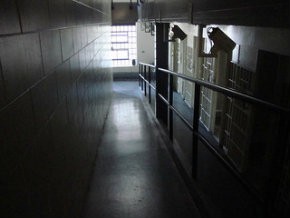The price of prisons
Americans seem to relish putting their fellow citizens behind bars. The numbers are staggering: though the U.S. has only 6 percent of the world’s population, it has 25 percent of the world’s prisoners. Whereas the median incarceration rate among all countries is 125 prisoners per 100,000 people, the U.S. rate is 743 per 100,000—by far the highest in the world. (In England it’s 153, in Japan 63.) As Senator James Webb (D., Va.) commented, “Either we have the most evil people on earth living in the U.S. or we are doing something dramatically wrong in how we approach criminal justice.”
Our country started doing something dramatically wrong in the 1980s, when President Reagan launched the War on Drugs, Congress passed laws that imposed mandatory minimum sentences for minor drug offenses, and many states passed similar get-tough-on-crime laws. This led to a boom in incarcerations: more people who had no history of violence were imprisoned and offenders had to serve longer terms.
As Michelle Alexander recounts in this issue ("Criminal injustice"), the punitive War on Drugs targeted blacks and Latinos—with devastating effects. Though blacks, whites and Latinos use and sell illegal drugs at about the same rate, blacks and Latinos are much more likely to be sent to prison.
Political liberals have for years decried a system that prefers sending young men of color from impoverished neighborhoods to prison for nonviolent offenses over helping them get an education and a job. Lately, some political conservatives have begun to recognize the wisdom in that complaint, for they have seen that mass incarceration is a waste of taxpayer money: it costs an enormous amount and doesn’t make anyone safer. States can’t afford to keep building and staffing prisons. The U.S. can’t afford to spend $200 billion a year to incarcerate over 2 million people. Conservatives like Newt Gingrich, Jeb Bush and Grover Norquist are among the supporters of the advocacy group Right on Crime, which seeks to expand parole and probation programs and improve drug treatment and reentry programs for prisoners—all of which are more effective and less expensive than incarceration.
Senator Webb thinks that a bipartisan approach to comprehensive reform is being forged, and he has proposed forming a national criminal justice commission that would outline how to reshape the system from top to bottom. The plan has the support of more than 100 organizations, from sheriffs’ associations to the ACLU to the Prison Fellowship, founded by the recently deceased evangelical activist Charles Colson. Webb’s bill was passed on bipartisan votes in the House of Representatives and in the Senate Judiciary Committee before it was blocked last fall by a group of Republican senators. Reihan Salam, a columnist for the conservative National Review, called that negative vote “insane” and an “absolute scandal.” The current criminal justice system is certainly an absolute scandal—and a catastrophe for millions of Americans, their families and their communities.






